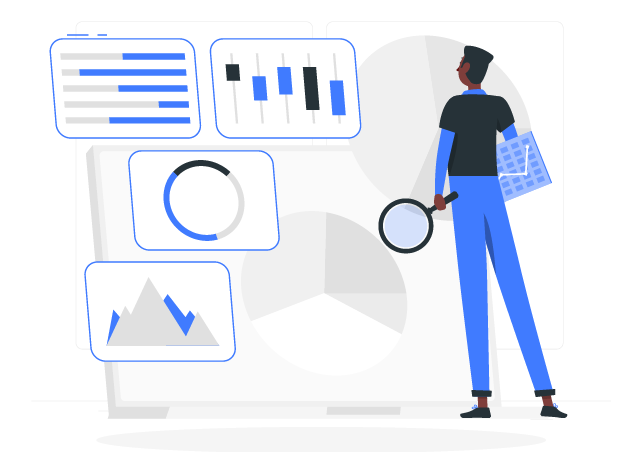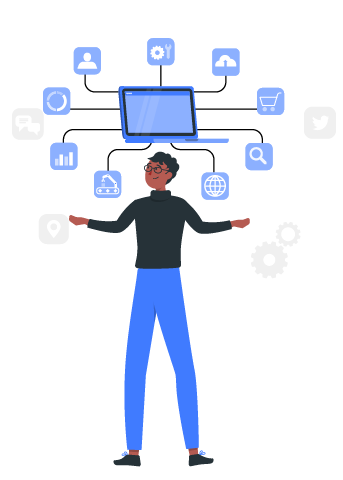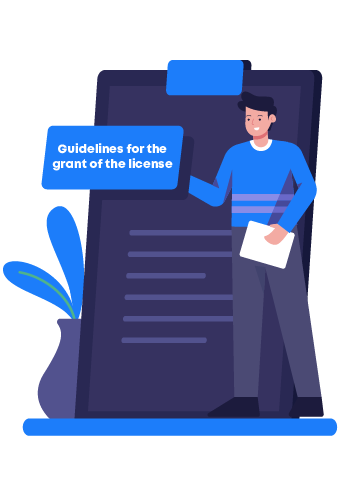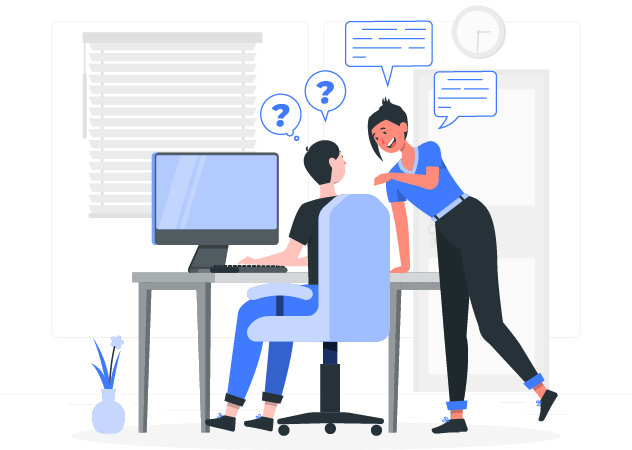Consultation on licensing framework for various telecom licenses in India
We, at VINCULAR, provide holistic consultation on the telecom regulatory framework around the licensing conditions under UL and UL (VNO).
Introduction of Unified License
The licensing framework in the telecom industry has been an ever-evolving arena in India. The continual advancements in technology have driven significant reforms in the telecom sector, transforming the way communication services are delivered and consumed.
In the year 2013, the introduction of the Unified License (UL) in India was a significant step in the liberalization and consolidation of the country’s telecom sector. The Unified License (UL) is a comprehensive license that allows to offer a range of services, including basic telephony, access services, internet services, national and international long-distance services, audiotex, machine-to-machine communication, and other value-added services. UL provides flexibility and convergence of different services under a single license. Prior to this, the licensing regime in India had separate licenses for each of these various telecom services. The telecom license holders in India are known as the Telecom Service Providers (TSPs).
In the year 2013, the introduction of the Unified License (UL) in India was a significant step in the liberalization and consolidation of the country’s telecom sector. The Unified License (UL) is a comprehensive license that allows to offer a range of services, including basic telephony, access services, internet services, national and international long-distance services, audiotex, machine-to-machine communication, and other value-added services. UL provides flexibility and convergence of different services under a single license. Prior to this, the licensing regime in India had separate licenses for each of these various telecom services. The telecom license holders in India are known as the Telecom Service Providers (TSPs).

Introduction of Unified License for Virtual Network Operators (VNO)
In the recent years, our country has experienced a persistent growth of the usage of cloud telephony services in India and a significant increase in revenue contribution to the Telecom Sector. To regulate these new age service providers, the DOT, with support from TRAI, introduced another category of service providers in 2016, i.e., Virtual Network Operators (VNOs). On the same lines as UL licensing conditions, a separate framework namely Unified License (Virtual Network Operators) was established.
The UL (VNO) license is eligible to be taken by entities who provide telecom services without owning the underlying network infrastructure. VNOs lease network capacity from licensed telecom operators and offer services under their own brand. VNOs are treated as extension of NSOs (Network Service Operators) or TSPs.
It’s important to note that the specific requirements, terms, and conditions for obtaining and operating under these licenses are subject to regulations and policies set by the key authorities, DoT and TRAI. The licensing framework keeps on progressing with modifications as per the changing times by the regulatory authorities. However, it is important for the service providers to stay compliant with the latest guidelines.
The UL (VNO) license is eligible to be taken by entities who provide telecom services without owning the underlying network infrastructure. VNOs lease network capacity from licensed telecom operators and offer services under their own brand. VNOs are treated as extension of NSOs (Network Service Operators) or TSPs.
It’s important to note that the specific requirements, terms, and conditions for obtaining and operating under these licenses are subject to regulations and policies set by the key authorities, DoT and TRAI. The licensing framework keeps on progressing with modifications as per the changing times by the regulatory authorities. However, it is important for the service providers to stay compliant with the latest guidelines.

Guidelines for the grant of the license
The broad guidelines for the grant of Unified License (UL) and Unified License (Virtual Network Operator) {UL (VNO)} are:
The applicant must be an Indian company, registered under the Companies Act, 2013.
The applicant shall apply for the license online on the SARAL SANCHAR portal along with the requisite legal/ technical documents.
The authorisation of the license under UL (VNO) is granted for one or more services listed below:
A. Unified License VNO (All Services)
B. Access Service (Service Area-wise)
C. Internet Service (Category-A with All India jurisdiction)
D. Internet Service (Category-B with jurisdiction in a Service Area)
E. Internet Service (Category C with jurisdiction in an SSA)
F. National Long Distance (NLD) Service
G. International Long Distance (ILD) Service
H. Global Mobile Personal Communication by Satellite (GMPCS) Service
I. Public Mobile Radio Trunking Service (PMRTS) Service
J. Very Small Aperture Terminal (VSAT) Closed User Group (CUG) Service
K. Resale of International Private Leased Circuit (IPLC) Service
L. Access Services Category B
M. Machine to Machine (M2M) (Category-A with All India jurisdiction)
N. Machine to Machine (M2M) (Category-B with jurisdiction in a Service Area)
O. Machine to Machine (M2M) (Category C with jurisdiction in a SSA/ District area)
The applicant shall apply for the license online on the SARAL SANCHAR portal along with the requisite legal/ technical documents.
The authorisation of the license under UL (VNO) is granted for one or more services listed below:
A. Unified License VNO (All Services)
B. Access Service (Service Area-wise)
C. Internet Service (Category-A with All India jurisdiction)
D. Internet Service (Category-B with jurisdiction in a Service Area)
E. Internet Service (Category C with jurisdiction in an SSA)
F. National Long Distance (NLD) Service
G. International Long Distance (ILD) Service
H. Global Mobile Personal Communication by Satellite (GMPCS) Service
I. Public Mobile Radio Trunking Service (PMRTS) Service
J. Very Small Aperture Terminal (VSAT) Closed User Group (CUG) Service
K. Resale of International Private Leased Circuit (IPLC) Service
L. Access Services Category B
M. Machine to Machine (M2M) (Category-A with All India jurisdiction)
N. Machine to Machine (M2M) (Category-B with jurisdiction in a Service Area)
O. Machine to Machine (M2M) (Category C with jurisdiction in a SSA/ District area)


Note: All the services, except for services mentioned in (K) and (L) are covered under authorisation of license under UL and an additional service called Audio Conferencing/ Audiotex/ Voice Mail Service is covered under this regime.
One applicant can have only one license under its name for both UL and UL (VNO), i.e., grant of any additional service authorisation later on shall be added to the existing license only. No separate license shall be granted.
The applicant has to pay an application processing fee depending on the service authorisation they are opting for.
The applicant has to submit entry fee (one-time) and bank guarantee (financial and performance) to DoT once the application is scrutinized by the authorities (including various departments).
For UL(VNO), the terms and conditions of sharing of infrastructure between the NSO/TSP and VNO shall be on the basis of mutually accepted terms and conditions between the NSO and the VNO.
Once the license is granted, the licensee is required to pay an applicable license fee to DoT based on their service authorizations. The license fee can be a fixed fee or a revenue-sharing arrangement, depending on the specific terms and conditions.
A UL license is issued for a period of 20 years while a UL (VNO) license for 10 years.
There are various other technical and security conditions that must be adhered to by the licensee.
One applicant can have only one license under its name for both UL and UL (VNO), i.e., grant of any additional service authorisation later on shall be added to the existing license only. No separate license shall be granted.
The applicant has to pay an application processing fee depending on the service authorisation they are opting for.
The applicant has to submit entry fee (one-time) and bank guarantee (financial and performance) to DoT once the application is scrutinized by the authorities (including various departments).
For UL(VNO), the terms and conditions of sharing of infrastructure between the NSO/TSP and VNO shall be on the basis of mutually accepted terms and conditions between the NSO and the VNO.
Once the license is granted, the licensee is required to pay an applicable license fee to DoT based on their service authorizations. The license fee can be a fixed fee or a revenue-sharing arrangement, depending on the specific terms and conditions.
A UL license is issued for a period of 20 years while a UL (VNO) license for 10 years.
There are various other technical and security conditions that must be adhered to by the licensee.
How can we help

We possess a comprehensive understanding of the regulatory framework governing the telecom sector, including the specific compliances associated with UL and UL (VNO) licenses. We can provide invaluable assistance to our customers in navigating the complex landscape of regulatory compliances as this space of the telecom industry is a very niche market and has a lot of scope for growth in the coming years.
Consultation on appropriate license requirements based on the services being offered and the business setup of the company
Thorough support in acquiring the suitable license from DoT including the preparation of various legal, technical, and other supporting documents
Submitting the application form and liaison with the regulatory authorities
Maintaining regular routine compliances under the license including support in quarterly license fee (AGR) submissions, annual submission, preparing relevant documents in the DoT prescribed format
Thorough support in acquiring the suitable license from DoT including the preparation of various legal, technical, and other supporting documents
Submitting the application form and liaison with the regulatory authorities
Maintaining regular routine compliances under the license including support in quarterly license fee (AGR) submissions, annual submission, preparing relevant documents in the DoT prescribed format

FAQs
UL stands for Unified License. It is a single license framework introduced by the Indian government that allows operators to provide various telecom services, including basic telephony, internet services, national and international long distance, cellular mobile services, and value-added services.
UL-VNO stands for Unified License for Virtual Network Operators. It is a specific category of license that allows entities to provide telecom services as Virtual Network Operators without owning the underlying network infrastructure. UL-VNO licensees lease network capacity from licensed telecom operators and offer services under their own brand.
UL covers a wide range of services such as basic telephony, internet services, national and international long distance, cellular mobile services, and value-added services. UL-VNO licensees can provide telecom services including voice, data, and value-added services, leveraging the network infrastructure of licensed telecom operators.
The application process involves submitting the required documents and fees to the Department of Telecommunications (DoT). The specific application forms, documents, and procedures may vary, so it is advisable to refer to the latest guidelines issued by the DoT.
The eligibility criteria typically include factors such as financial requirements, technical capabilities, and compliance with regulatory guidelines. Specific eligibility criteria can be found in the guidelines issued by the DoT.
Yes, both UL and UL-VNO licensees are required to comply with the relevant laws, regulations, and quality of service norms specified by the DoT and Telecom Regulatory Authority of India (TRAI). Compliance with data privacy and security regulations is also essential.
Yes, both UL and UL-VNO licensees can offer international services, subject to the specific terms and conditions mentioned in the license and any additional permissions required.
Revenue-sharing obligations may apply to certain services and license categories. UL and UL-VNO licensees are required to comply with the revenue-sharing arrangements, if applicable, as specified by the DoT.
Yes, UL-VNO licensees have the flexibility to lease network capacity from multiple licensed operators, allowing them to provide services across different areas and access diverse network resources.
The specific regulations pertaining to foreign ownership or investment may vary, and it is advisable to refer to the latest guidelines issued by the DoT to understand the applicable restrictions or requirements.

